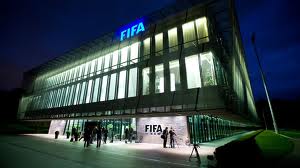By Andrew Warshaw
December 17 – The timing could have not have been more apt. Just as their top brass gather in Morocco for what could prove a pivotal executive committee meeting, so FIFA’s appeals committee has made an attempt to close another chapter in the seemingly interminable 2018 and 2022 World Cup corruption probe.
In a ruling that will likely only serve to fuel further debate and legal ramifications, world football’s governing body has dismissed ethics prosecutor Michael Garcia’s appeal against the handling of his investigation into the bidding process, deeming Garcia’s move “not admissible”.
FIFA was plunged into chaos and confusion last month when ethics judge Hans-Joachim Eckert said there were no grounds in the evidence from Garcia’s report to reopen the case that led to Russia being given the 2018 finals and Qatar the 2022 tournament.
In his summation, Eckert concluded that any corruption or rule-breaking by the nine candidates involved was of “very limited scope” and did not influence the votes, effectively clearing the way for Russia and Qatar to host.
But Garcia, who led the FIFA-commissioned investigation over an 18-month period, prompted by a series of corruption allegations, immediately appealed against the findings of Eckert’s 42-page summary of his 430-page dossier, claiming the German judge’s version contained “numerous materially incomplete and erroneous representations” of his work.
FIFA’s appeals committee now argues that Eckert’s statement “does not constitute a decision and as such is neither legally binding nor appealable.”
Eckert, FIFA added by way of further explanation, “had merely commented on the report of (Garcia’s) investigatory chamber on a voluntary basis.”
The latest ruling in what has become an almost farcical state of affairs seems certain to be heavily discussed by exco members in Marrakesh, pitting traditionalists against reformists.
How much of Garcia’s original file ultimately gets published could all come down to a presentation on Friday by Domenico Scala, chairman of FIFA’s audit and compliance committee, who will brief exco members on what can and can’t be made public.
The exco is then expected to vote on whether to relax secrecy rules enshrined in FIFA’s ethics code and agree to publication, most likely in redacted form.
Garcia’s appeal defeat has no bearing on separate disciplinary proceedings into the conduct of five senior officials, four of whom voted in the joint 2018 and 2022 ballot four years ago that was marred by claims of bribery, collusion and favor-seeking.
Two of the five, Belgium’s Michel d’Hooghe – one of FIFA’s longest serving administrators and head of its medical committee – and Chile’s Harold Mayne Nicholls, who took no part in the vote back in 2010 but led FIFA’s technical inspection team that evaluated the bidding countries, have both vehemently denied any wrongdoing.
FIFA and both World Cup organisers have been fending off allegations of corruption ever since the ballot took place. But Wolfgang Niersbach, president of the German football federation and a growing influence in football politics, spoke for many when he said people had now “lost track” of the entire saga.
Niersbach, who European members seem likely to elect to FIFA’s inner sanctum in March, said the sport’s governing body was failing to be an institution of “absolute credibility and integrity.”
As for Garcia, what he does next is intriguing. With his reputation on the line, he could go ahead and publish the entire report, or in some way engineer it being leaked. Or he could take his appeal to the Court of Arbitration for Sport for a final decision though that would only drag things out even longer.
Contact the writer of this story at moc.l1745115210labto1745115210ofdlr1745115210owedi1745115210sni@w1745115210ahsra1745115210w.wer1745115210dna1745115210

